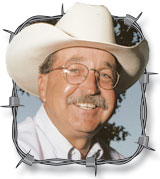It has begun.
There was an article in a major newspaper last week that described how wealthy attorneys, stock brokers, dot-com billionaires and many other people with money have started buying U.S. farmland as their hedge against an ailing economy. The article proceeded to explain how worldwide food shortages and the stagnant economy of this country have non-agriculture investors buying up farmland at an unprecedented rate. These wealthy business people are betting that productive acreages hold the potential to make them even richer as food prices continue to rise. Many of them also believe that even if the farms are not able to turn a good profit from production, the ever-increasing value of that land is a safe hedge against the expected inflation that will occur once the economy rebounds.
This in-depth story gave several examples of how these investors were paying, in some instances, more than $7,000 per acre for prime, midwestern crop land. In most cases, the people doing the buying had never even set foot on a farm in their entire lives, but were relying on the advice of agricultural consultants who could assure they were getting exceptionally productive land. Luckily…
I have one particular farm that I’ve had listed with a local realtor on and off for the past 3 years. This farm was one of the first ones that I bought when I quit teaching and started farming full time. Even though it was a few miles from the other pieces of land I had put together, it was a good buy for that time, and I always figured one, or both, of my sons would want to carry on the Crownover tradition of farming. Now that neither of them seems inclined to walk down that path, I decided to downsize a bit to where an aging and bulging old man could take care of what I have by myself. This farm is the farthest away and is sometimes the most difficult to get to during the winter months.
In my lifetime, this place has never been a crop farm, but only three-quarters of a mile south, an individual has killed out the fescue this year and no-tilled soybeans into a farm that is very similar to mine. I figure the right agricultural consultant could show a wealthy investor from the city how he could get my farm for a song, compared to that nasty old Iowa cropland where the winters are so brutal.
The super-duper consultant could, with my help, point out many of the advantages of owning a crop farm in the Ozark hills as opposed to the high-priced land of Illinois. For instance, standing water that drowns out beans and corn each spring is almost unheard of in my area. Additionally, wells are not needed for irrigation since a creek runs right through the middle of the place, just in case the land doesn’t capture enough moisture from the rocks that sweat in the heat of the summer sun. And, all those rocks actually add minerals to the land which would reduce the need for that expensive fertilizer that he would have to add to a Nebraska farm.
Yes, with the right consultant, the farm I have for sale would make the wealthy buyer think he was actually getting away with legalized robbery at… say… $4,000 per acre.
Now, to find that consultant. I wonder if Hank Kimball is still around, or better yet, Mr. Haney.
Jerry Crownover farms in Lawrence County. He is a former professor of Agriculture Education at Missouri State University, and is an author and professional speaker. To contact Jerry, go to ozarksfn.com and click on ‘Contact Us.’







